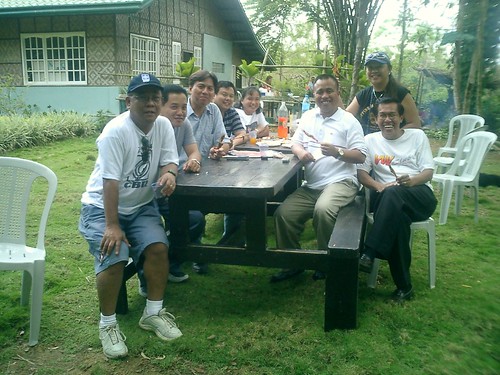Editorial : Tangled web
Inquirer News Service
A TANGLED web of charges, countercharges, witnesses and counter-witnesses is all the country has to show for all the efforts of its leaders. No institution has emerged unscathed and unsullied. The administration is presenting -- and demolishing -- witnesses with as much viciousness and enthusiasm as the opposition, while the Catholic Church, the military, the police, media and civil society have all gotten into the act, in one way or another. Everyone has a witness, and everybody else has found a way to destroy that witness.
It is not our role to play prosecutor for either side, but it is our responsibility to point out the depths of irresponsibility and ruthlessness our major political players have sunk into. One side presents someone, only for that person to retract his story or modify it to the extent that his testimony becomes hopelessly muddled. Large sums of cash are just some of the considerations that are allegedly dangled. The use of police power, legal threats and personal appeals add to a general picture of power being used for the sake of power, and not in the search for the truth or the greater good. What is happening now serves as an indictment of the low regard in which the major players hold the public. Innuendo and slander are replacing facts; demolishing -- and not building up -- a case is the name of the game.
The public knows that when a witness bursts into tears, begging the forgiveness of the First Family, the tears weren't inspired by a sudden call to greatness, but most likely by a promise of cash to make crying worthwhile. The public also knows that when a witness with a large number of police officers hovering in the background steps forward to demolish the testimony of another witness, that demolition is inspired as much by fear of the policemen's guns as it is by a desire to tell the truth. The truth, such as it is, is only this: that both sides regard it as something that can be changed and modified at will.
The personal nature of the charges and countercharges is increasingly reflected in the persons perceived to be behind them. There is the President, with her loyal lieutenants moving heaven and earth to demolish hostile testimony. There is the opposition, moving with equal resolve to keep producing witnesses who will testify at least until new witnesses can be produced. On a certain level, it is perhaps more understandable to see the President and her people, moving with such ferociousness, since the life of the administration is on the line. It is less understandable to see opposition leaders virtually abandoning all pretense to either objectivity or statesmanship.
Sen. Panfilo Lacson has warned that if President Gloria Macapagal-Arroyo wants to make this a personal match, he would gladly accommodate her. After being accused of being the main mobilizer of witnesses against the President, Lacson has vowed to redouble his efforts to produce damaging witnesses.
The problem is that Lacson is a senator, and belongs to a body that everyone expects to hear the charges leveled against the President. We have heard time and again that an impeachment is a political process, that it isn't expected to be composed of completely impartial individuals, but neither is it expected to be a body devoid of even the appearance of having an open mind.
Public opinion has spoken out strongly in favor of the impeachment process. While some sectors have called for senators who have clearly expressed a position unfavorable to the President to inhibit themselves, this call has not been taken up by the majority. The public knows better than to expect a fair hearing of the administration case from the likes of the Estradas, mother and son, for example. Their hostile questioning will be par for the course, and their vote a foregone conclusion. But even the Estradas have resisted the urge to volunteer to do the job of the House of Representatives, which is, if it resists the temptation to throw out the impeachment complaint, to prosecute the case before the Senate. There is partisanship, and there is such a thing as crossing the line. Lacson has exhibited both.
This week should see the debate over the complaints in the House heating up. It should also mark the start of a period of preparation and reflection in the Senate. Few institutions get a second chance to prove themselves capable of living up to the highest, instead of the lowest, expectations of the public. The Senate, unless denied that opportunity by the House, will have that chance.







No comments:
Post a Comment